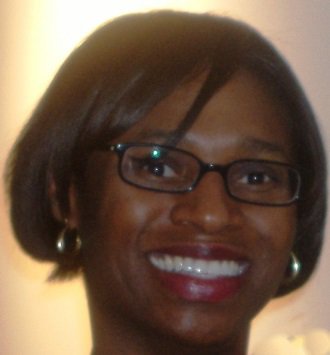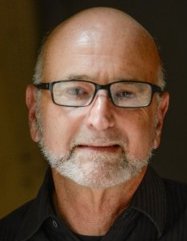 Collective impact efforts are often discussed in terms of organizations or sectors, such as business, nonprofit, government, and philanthropy. What is often left out of the discussion is the community itself, even though it is a critical factor in the long-term success of collective impact initiatives. The community includes the individuals, families, networks, and organizations who will be affected by the initiative and who participate in it, but who are not usually considered to have active leadership roles in creating community solutions. It includes, for example, people directly affected by the problem, as well as social service organizations that may not be initially represented on steering committees or working groups.
Collective impact efforts are often discussed in terms of organizations or sectors, such as business, nonprofit, government, and philanthropy. What is often left out of the discussion is the community itself, even though it is a critical factor in the long-term success of collective impact initiatives. The community includes the individuals, families, networks, and organizations who will be affected by the initiative and who participate in it, but who are not usually considered to have active leadership roles in creating community solutions. It includes, for example, people directly affected by the problem, as well as social service organizations that may not be initially represented on steering committees or working groups.
This webinar explores why it is important to involve the community actively, how it can be done within a collective impact initiative, and the challenges and pitfalls of engaging the community.
This discussion will further explore the themes discussed in the artiele, Roundtable on Community Engagement and Collective Impact.
Panelists
- Raymond A. Colmenar, senior program manager, Health Happens in Neighborhoods
- Richard Harwood, founder and president, The Harwood Institute for Public Innovation
- Stacey Stewart, U.S. president, United Way Worldwide
- Martin Zanghi, director of youth and community engagement, University of Southern Maine Muskie School of Public Service
- Sheri Brady, senior associate for strategic partnerships, the Aspen Institute Forum for Community Solutions (Moderator)
Webinar Series Pass: Register for the entire three-part Collective Insights on Collective Impact webinar series here.
Related Webinars:
ABOUT THE PANELISTS
Raymond A. Colmenar is senior program manager for Health Happens in Neighborhoods under The California Endowment's 10-year strategic program Building Healthy Communities, and is also co-leading The California Endowment's "Heath Happens w/ all our Sons & Brothers" efforts, aimed at improving the health of boys and young men of color. Prior to joining The Endowment, Colmenar was an associate director at PolicyLink, a national nonprofit research, communications, capacity building and advocacy organization. He has also served as a senior research associate with The Rockefeller Foundation, executive director for the South of Market Problem Solving Council, and policy analyst for the San Francisco Department of Human Services. Colmenar received his bachelor's in management science from the University of California, San Diego, and his master's in public policy from the Goldman School of Public Policy at the University of California, Berkeley.
Richard Harwood is the founder and president of The Harwood Institute for Public Innovation, a national nonprofit organization that teaches and coaches people and organizations to solve pressing problems and change how communities work together. Harwood recently facilitated Newtown, Connecticut's unanimous decision on the fate of Sandy Hook Elementary, where 26 children and adults were killed in December 2012. A prolific author, Harwood's books and guides include The Work of Hope: How Individuals and Organizations Can Authentically Do Good; Hope Unraveled; Make Hope Real; and Why We're Here: The Powerful Impact of Public Broadcasters When They Turn Outward. He has also written numerous studies and articles and has appeared on national media including MSNBC, NPR, CNN's Inside Politics, The NewsHour with Jim Lehrer, Special Report with Brit Hume, and C-SPAN.
Stacey Stewart, U.S. president, United Way Worldwide, leads 1,200 local and state United Ways in collective impact, strategic partnership development, diversity and inclusion, business model transformation, and policy and advocacy. Before becoming president, Stacey served as executive vice president for Community Impact Leadership and Learning. Prior to joining United Way Worldwide, Stewart held several positions at Fannie Mae, including senior vice president of Community and Charitable Giving and chief diversity officer. She was also president and chief executive officer of the Fannie Mae Foundation. Stewart has a master of business administration degree in finance from the University of Michigan and a bachelor of arts in economics from Georgetown University. She also holds honorary degrees from Trinity University, Morgan State University, Texas Southern University and Alabama A&M University. She serves on multiple national advisory councils and boards, including the U.S. Board of United Way, Alumni Board of Governors for the Stephen M. Ross School of Business at the University of Michigan, the Board of Directors for the Girl Scouts Nation's Capital and the Board of Trustees for PennyMac Mortgage Investment Trust.
Marty Zanghi, MSW, has worked in the child welfare field for over 25 years primarily with youth, public/private agency staff and administrators. He joined the Muskie School of Public Service in 1996, where he is currently the Director of the Youth & Community Engagement Team. Zanghi has provided training and technical assistance to public and private agencies and community based organizations in the areas of organizational and program planning and development. His training and technical assistance has enhanced organizations in the areas of youth leadership development, adventure-based programming, mentoring and community engagement. He founded the nationally recognized Maine Youth Leadership Advisory Team (YLAT) in the 1998. Zanghi presently leads the Maine Youth Transition Collaborative and the Maine, Aspen Institute's Opportunity Youth Incentive Fund, an initiative that was created as a result of the White House Council for Community Solutions. He has directed federal grants for the Administration for Children and Families and was a member of the Administration for Children and Families Youth Demonstration Development project's technical workgroup. He has worked closely with foundations throughout the country to improve the outcomes and resources available for youth in transition. Zanghi has written and presented extensively on preparing youth for successful transition to young adulthood. He is an adjunct faculty member at the University Of New England School of Social Work.
Moderator
Sheri Brady is the senior associate for strategic partnerships at the Aspen Institute Forum for Community Solutions. Prior to joining the Aspen Institute, Brady served as a senior policy fellow at Voices for America's Children. She was previously the director of policy at the W.K. Kellogg Foundation. Her prior work also includes serving as director of policy at the National Council of Nonprofits and program director at the Center for Policy Alternatives. Brady received her bachelor's degree in political science from Wheaton College in Norton, MA, and her law degree from the University of California at Berkeley.
 10am to 3pm
10am to 3pm
 2pm to 3:30pm Eastern
2pm to 3:30pm Eastern


 Over 49 communities are working together through the StriveTogether Cradle to Career Network to define quality collective impact. Join this online panel discussion to learn about the proven, rigorous approach these communities are using to build civic infrastructure and hear stories about how cross-sector partnerships on the ground are implementing innovative approaches to support the unique needs of every child.
Over 49 communities are working together through the StriveTogether Cradle to Career Network to define quality collective impact. Join this online panel discussion to learn about the proven, rigorous approach these communities are using to build civic infrastructure and hear stories about how cross-sector partnerships on the ground are implementing innovative approaches to support the unique needs of every child.